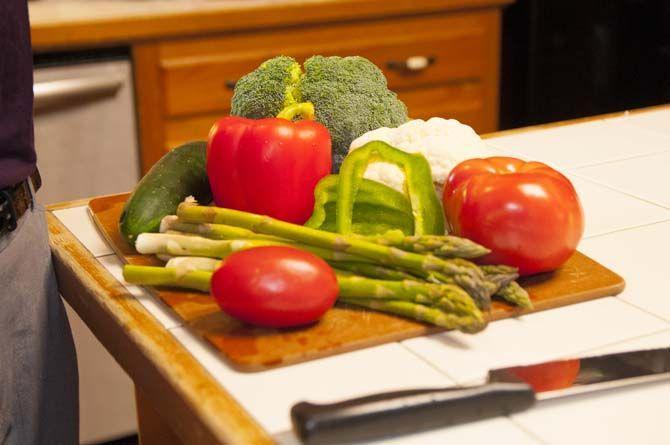Did you gain weight during quarantine? Would you like to lose the weight you gained during quarantine? Are you a bored college student looking to pick up some healthy habits or even just spice up your routine? Are you very susceptible to online marketing and lifestyle advice on TikTok?
If you answered yes to any of these questions, you’re in good company.
Deciding to diet is one thing, but actually starting a diet program is a different beast. It can be difficult to find a plan that fits your needs, promises real results and doesn’t pose a threat to your physical or mental health.
On my own quest for self-improvement, I’ve endeavored to implement changes in my own life and report my results here so others can benefit from my experiences — both positive and negative. So, without further ado, welcome to “Losing the Quarantine 15: What Works and What Doesn’t.”
First up is the South Beach Diet.
This three-phase, low-carb diet promises dramatic weight loss — eight to thirteen pounds! — in the first two weeks, as well as a reduction in sugar cravings.
Though the official South Beach diet handbook mentions adding thirty minutes of daily exercise to the diet regime, the program focuses predominantly on what foods to eat and which ones to avoid.
Prior to starting this project, I had only ever seen the South Beach protein bars and shakes in the grocery store; I’d never heard about or tried the diet before, so I put a lot of time into researching the nutrition itself as well as recommended recipes and other people’s results before I actually tried it out myself.
Dr. Elizabeth Gollub from the LSU School of Nutrition and Food Sciences graciously answered all of my questions before I set out on my adventure. According to Dr. Gollub, a diet that features a “complete absence of a given food category/food group… that advertises rapid weight loss… or during which you consistently feel tired, drained, weak and headachy” should be a red flag.
Initially, all of South Beach seemed like a red flag. Really, it sounded too good to be true (another warning sign Dr. Gollub cautions against), with its promises of rapid weight loss in only two weeks — but the diet does offer some long-term guidance which seems promising.
Phase one lasts for two weeks and is by far the most restrictive — no sugar, fruit, grains or other higher-carb foods — but it features three full meals and two snacks every day, so you should never have that “starving” feeling many dieters dread. The second phase slowly incorporates some fruit and carbs back in so that by the time you reach phase three, you’re ready to recharge your life with new healthy habits…at least in theory.
I can officially say that, half-way through phase one, I am in hell. Although I have lost a little weight, I suspect it is mostly water weight and not long-term. Some days have been easier than others, but overall, the South Beach diet is hard to stick to. If it weren’t for the constant support and accountability checks from 21-year-old international studies senior Anabelle Johnson, I probably would have quit already.
South Beach is very restrictive in the types of food you can and can’t eat, but quantities of food are less restricted. For instance, you can eat as many eggs per day as you want, but you can only have two tablespoons of peanut butter.
As Dr. Gollub pointed out, going super low-carb has its place in the dieting world, but it shouldn’t be your regular or long-term approach to living a healthy life. It can leave you feeling weak and tired — both Anabelle and I can personally attest to this — but of all the trendy diets out there, I don’t think this one is the worst.
If you’re going to try the South Beach Diet, I definitely recommend doing your research and discussing it with your doctor to make sure you’re still getting all the necessary vitamins and nutrients. Having a friend by your side definitely helps make the process a little less frustrating, but it doesn’t make the sugar cravings any less awful.
Although South Beach has been difficult so far, I plan on sticking it out until phase three… for scientific reasons, of course! Phase two is a lot less restrictive, and if it means finally breaking my sugar habit long-term, I think it’ll be worth it.
That said, if there are any diets or exercise trends you’d like me to try out, send me an email or find me on Twitter!
Marie Plunkett is a 21-year-old classical studies senior from New Orleans.
Opinion: Losing the ‘quarantine 15’: what works and what doesn’t
January 19, 2021
Kristen begins prepping fresh vegetables and some fruits for her next dish on Monday Sept. 21, 2015 at her parents house on highland.






